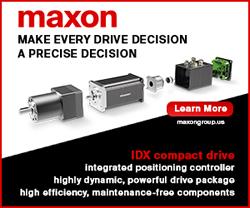Tempo Automation Demonstrates the Advantages of Its Automated Printed Circuit Board Assembly Factory at MD&M West
Company transforming electronics product development with new smart factory in San Francisco and significant updates to its factory automation software
San Francisco - February 5, 2019 — Tempo Automation, the world's fastest electronics manufacturer for prototyping and low-volume production of printed circuit board assemblies (PCBA), announces the opening of a new smart factory in San Francisco. Highlighted at MD&M West in Tempo Automation's Booth #4084, the company has also released new product software updates as part of its continued mission to improve the way electrical engineers, product designers, and manufacturers bring their innovations to market.
With its impressive expansion in high-growth markets, including medical technology, aerospace and defense, industrial automation, and autonomous and electric vehicles, Tempo needed to increase its production capacity, opening a new 42,000 square foot smart factory in San Francisco's Design District in August 2018. Tempo's new factory immediately doubled the company's production capacity, with space to expand output even more to accommodate its customers' growing demands. The new factory also includes more corporate office space to house Tempo's growing software, sales, and marketing teams, which have more than doubled in the last year.
"Tempo has seen tremendous growth over the last year as more customers in a range of industries see how we can help them get great products to market faster. Our proprietary automation software enables our factory to produce complex printed circuit board assemblies with unmatched quality and speed," says Jeff McAlvay, CEO, Tempo Automation. "By delivering improved speed, reliability, and transparency to our customers, Tempo empowers innovators to bring their designs to market faster—a boon for competitive industries like medtech, aerospace, industrial automation, consumer electronics, and automotive."
Accelerating the product development cycle from design to manufacture, Tempo recently delivered a host of significant product software updates. With these updates, Tempo further empowers engineers to bring their electronics products to market faster.
Tempo's new product software updates include:
• The Tempo Order Tracker
At each stage of the manufacturing process, the Order Tracker automatically displays status updates—from the initial order, throughout the SMT and inspection processes on the factory floor, to shipment—giving the customer real-time visibility into the progress of their board build.
• Tempo's Automatic Pick and Place Machine Programming software
Tempo's factory is auto-configured for production, as the system analyzes the CAD files and Bill of Material (BOM) data customers upload via the company's secure web portal. Each machine in the production line is programmed automatically, and a build plan is uploaded as a digital traveler to the devices that factory employees use. This update enables Tempo to yield even faster production of PCB assemblies and on-time delivery.
• Tempo's Automated Optical Inspection Auto-Program Generation software
New software updates from Tempo further the company's ability to deliver high complexity designs at unparalleled quality and speed by making the automated inspection of finished PCB assemblies both more thorough and faster.
While more recent widespread use of 3D printing technologies has made a significant impact on how medical devices are developed, PCBA design and manufacturing—core to many new innovations—remains a bottleneck in the product development process. At MD&M West, Tempo will discuss their new smart factory and product updates, as well as demonstrate how Tempo can help medtech engineers more rapidly perfect their designs. Tempo has published a case study that discusses their work with GE Healthcare, including the manufacture of complex designs and the construction and programming of a test fixture for design testing. Read and download the case study in this link.
As part of their mission to empower designers to work with manufacturers throughout the entire build process, Tempo also releases a new book, Design for Manufacturing for HDI Printed Circuit Boards: What You Need to Know for Board Build Success. Focused on HDI (High Density Interconnect) PCBA builds, the new literature details the source of HDI manufacturing challenges and shows how engineers can avoid the traps that compromise manufacturability. Visitors to the Tempo Automation booth (#4084) at MD&M West can receive a free copy of this book.
To learn more, please visit www.tempoautomation.com.
About Tempo Automation
Tempo Automation is the world's fastest electronics manufacturer for prototyping and low-volume production of printed circuit board assemblies. Tempo is changing the way electronics are developed by optimizing the process of creating prototypes with new levels of speed, precision, and transparency. Tempo's San Francisco-based connected factory is powered by proprietary automation software, creating an unbroken digital thread from design to delivery, enabling hardware developers to innovate faster. Tempo's investors include Lux Capital, Point72 Ventures, Uncork Capital, Bolt, Industry Ventures, Golden Seeds, Draper Associates, Dolby Family Ventures, Cendana, OS Fund, AME, and Incite Ventures. The company was founded in 2013.
For more information, please visit: http://www.tempoautomation.com and follow @tempoautomation.
Press Contact:
Caster Communications, Inc., 401-792-7080
Alex Crabb, alex@castercomm.com
Alex Gil, agil@castercomm.com
Meredith Shubel, meredith@castercomm.com
Featured Product

